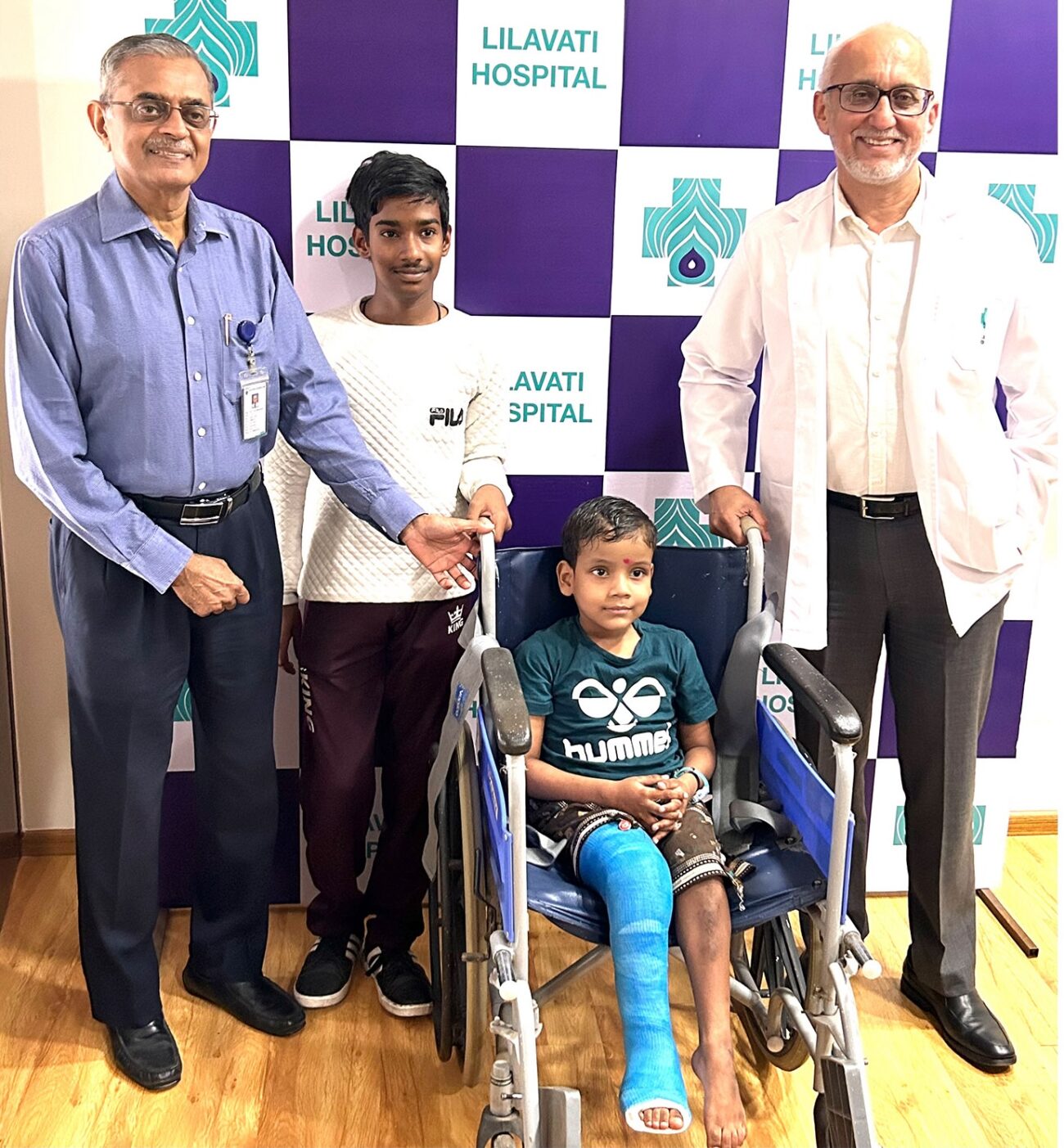Spina Bifida Cases A major Public Health Challenge in Maharashtra and India: 4-5 Cases Of Spina Bifida Per 1000 Live Births Detected
Lilavati Hospitals announce future plan to establish Fetal surgery centre to perform complex in-utero surgery in Mumbai Women should start folic acid-rich foods while planning pregnancy to avoid deficiency and disabilities in newborns: Suggest Dr Karmarkar. Spina

Lilavati Hospitals announce future plan to establish Fetal surgery centre to perform complex in-utero surgery in Mumbai
Women should start folic acid-rich foods while planning pregnancy to avoid deficiency and disabilities in newborns: Suggest Dr Karmarkar.
Spina bifida cases have become a major public health burden in Maharashtra and across India, with an alarming 4-5 cases reported per 1000 live births. The center aims to provide critical medical intervention for infants or children diagnosed with spina bifida, offering hope for families who currently face the devastating reality of untreated cases. The Department of Paediatric Surgery along with the Spina Bifida Foundation is organizing a free multidisciplinary counselling and program in Lilavati Hospital on Tuesday 30th January, 2024. Patients will be evaluated free of cost and counseled regarding their further management and rehabilitation.
Spina Bifida is a congenital birth defect that happens when a baby is growing inside the mother. It happens when the spinal cord, brain, or their covering called meninges don’t grow properly. It can happen anywhere along the spine and is usually seen as a hole in the baby’s back when they are born. Sometimes, it can be a sac filled with fluid sticking out from the spine, which may or may not have the spinal cord inside. There are three types of spina bifida: Myelomeningocele is the most common and serious type, where a sac outside the baby’s back has parts of the spinal cord and nerves. This causes big physical problems like not being able to control the bladder and trouble moving or feeling their legs or feet. Meningocele also has a sac filled with fluid outside the baby’s back, but it doesn’t have any part of the spinal cord, so the problems are not as bad. Spina bifida occulta is a milder type that might not be noticed until later in life and doesn’t cause any problems because the spinal cord and nerves are not damaged.
Dr. Santosh Karmarkar, a Pediatric Surgeon at Lilavati Hospital and Research Centre in Mumbai, pointed out that approximately 70% patients are not getting the required treatment due to lack of awareness or financial constraints preventing them from affording multiple surgeries during childhood. These patients also lack proper and timely guidance and medical care, forcing them to fend for themselves. Medical professionals are calling for proactive measures to address this issue and stress the importance of tackling the root causes of spina bifida. Additionally, he revealed the future plans to establish a state-of-the-art Fetal Surgery Centre in Mumbai dedicated to performing complex in-utero surgeries.
Dr. Santosh Karmarkar emphasized the crucial role of folic acid in reducing the risk of neural tube defects, like spina bifida, in unborn babies. He advised that women incorporate folic acid-rich foods into their diet prior to trying to conceive to ensure they have an adequate supply in their system. This nutrient is known to be vital for early fetal development and can greatly reduce the chances of birth defects. Furthermore, Dr. Karmakar advocated for the use of prenatal vitamins containing folic acid, which are often recommended by healthcare professionals. By taking these supplements, women can further mitigate the risk of neural tube defects in their future offspring.
It is important for women to be proactive about their health and nutrition even before pregnancy is planned. Ensuring sufficient levels of folic acid through a balanced diet and possibly supplements can lead to a healthier pregnancy and lower the likelihood of certain birth defects. Adds Dr Karmarkar.
Rishi Ganesh Gupta, a 15-year-old, and 6-year-old Piyush Sahilkar, born with Spina bifida cystica both of whom underwent successful operations during the camp, were present.
Lt Gen (Dr) V Ravishankar, the Consultant Cardiovascular Surgeon and Chief Operating Officer at Lilavati Hospital, highlighted the hospital’s role as a referral center for high-risk surgeries from both within the country and overseas. He emphasized the need to raise awareness about Spina Bifida, a congenital birth defect that is often overlooked in rural areas due to a lack of medical expertise. He stressed the critical need for educational campaigns and outreach programs designed to educate communities about early detection and treatment options for this condition. Lilavati Hospital’s dedication to not only providing top-tier medical services but also advocating for public health concerns sets it apart as a leading institution in healthcare. Dr. Ravishankar’s call to action underscores the hospital’s unwavering commitment to improving healthcare access and outcomes nationwide.
To address this, Lilavati Hospital is organizing a free multidisciplinary counselling program and camp in collaboration with the Spina Bifida Foundation on Sunday, 30th January for the benefit of children and their families. Additionally, non-affording patients can avail 50% to 100% waiving of surgery charges through SEWA and the Spina Bifida Foundation’s support. This opportunity will enable patients who have faced financial or other obstacles to complete their medical management successfully.






